- Category
- Anti-Fake
As Ukraine Fights for Survival, “Anora” Turns Russian Oligarch Excess Into a Neon-Lit Fever Dream
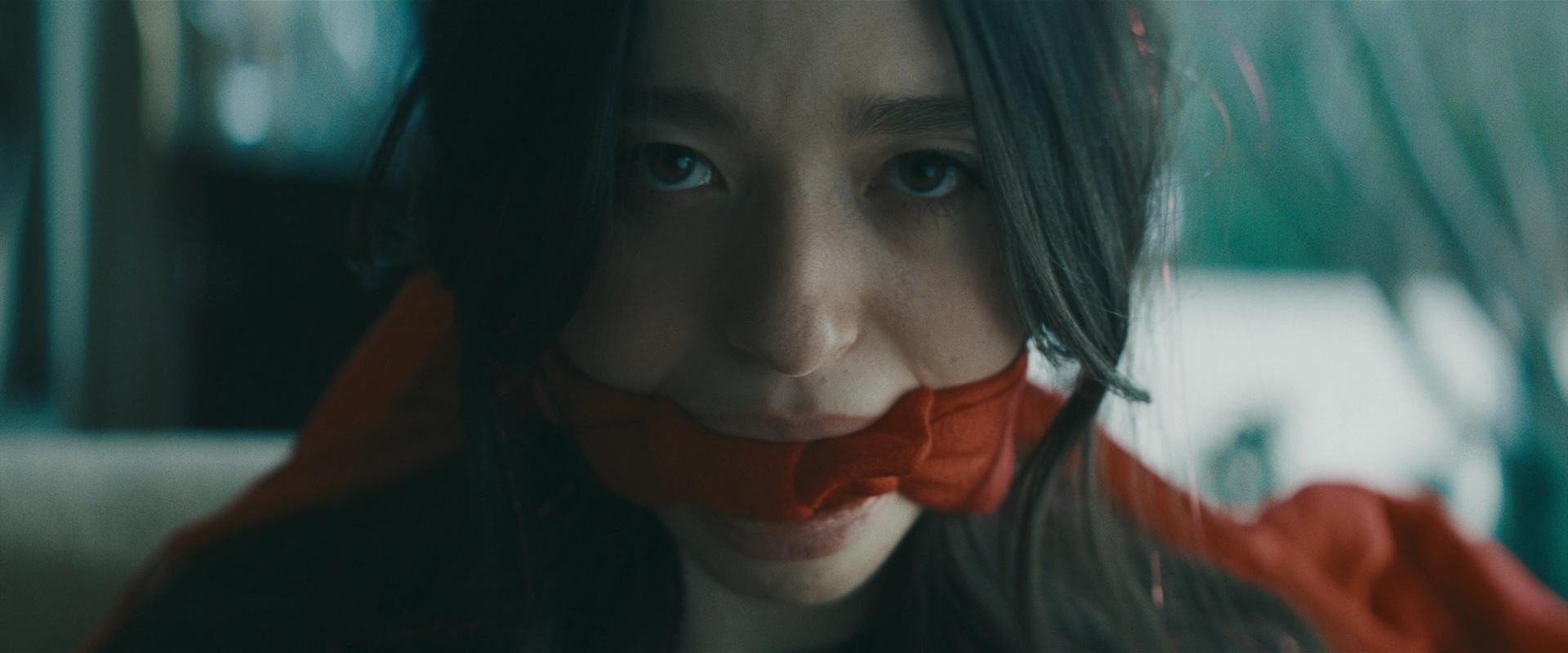
As Anora wins big at the Oscars, its success raises questions about the film’s ties to Russian actors who have remained silent on the war in Ukraine and the broader role of cinema in shaping political narratives.
At this year’s Academy Awards Anora won five Oscars including Best Picture, Best Actress and Best Director. Among its nominations was that of Russian-born actor, Yura Borisov, in the Best Supporting Actor category—the first since 1977. Given the Academy’s well-documented history of using nominations and awards to push important political and cultural narratives, the decision to highlight Borisov and this particular film is puzzling.
Borisov, who has starred in Kremlin-backed films and worked in Russian-occupied Crimea, has made no effort to distance himself from Moscow. But it isn’t only The Academy nominating Borisov for awards. The 32-year-old actor was nominated by BAFTA, the Gotham Awards, and the Los Angeles Film Critics Association for his role in Anora.

Cinema, intentionally or not, shapes global narratives. And Anora, rather than meaningfully engaging with Russia’s oligarchic system, treats it like a quirky aesthetic choice—an exotic backdrop for yet another indie dramedy. Fronted by a Russian-born actor, this film is being showered with accolades while Russia continues its war in Ukraine.
“Breakout star”
At the heart of the film is Yura Borisov’s character, Igor—a dim-witted but dangerous mobster working for the Zakharov family, a dynasty of Russian oligarchs. His role is simple: keep the reckless son, Vanya, in check, and clean up any messes he leaves behind. But, as the film unfolds, it becomes clear that Igor is more than just muscle; he is a reflection of the hierarchy and moral decay within the world he inhabits.
Anora, an American stripper of Russian descent, gets entangled with Vanya, a rich Russian playboy wasting his days (and his father’s money) in New York. Their whirlwind romance, fueled by reckless indulgence, leads to a sudden and transactional proposal: marriage in exchange for a green card. “I will become American, and my parents will suck my d**k,” Vanya proclaims. It’s a moment of absurdity that, in retrospect, sets the stage for the chaos to come.
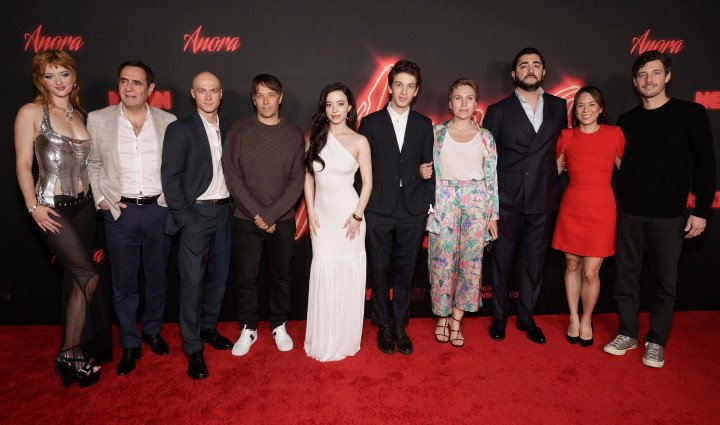
That chaos arrives in the form of Igor. When Vanya’s parents discover the marriage, they dispatch Igor and another enforcer to handle the situation. Their method? Abduction and intimidation. Anora is tied up and threatened into annulling the marriage while Vanya, ever the coward, vanishes.
Draped in designer labels and bejeweled in Van Cleef, Zakharov’s parents ooze excess. But beneath the luxury lies a familiar menace. When Anora refuses to annul the marriage, Vanya’s mother delivers a chilling threat:
“You will lose everything. Any money you may have—though I doubt you have much—will be gone. Do you have a house? A car? All gone. Your life, the lives of your family and friends, everything will be destroyed.”
Galina Zakharov
Anora
Watching this from Ukraine, the moment feels less like a movie villain’s empty threat and more like a window into the imperial mindset—the belief that power and money grant the right to take whatever one desires, no matter the cost.
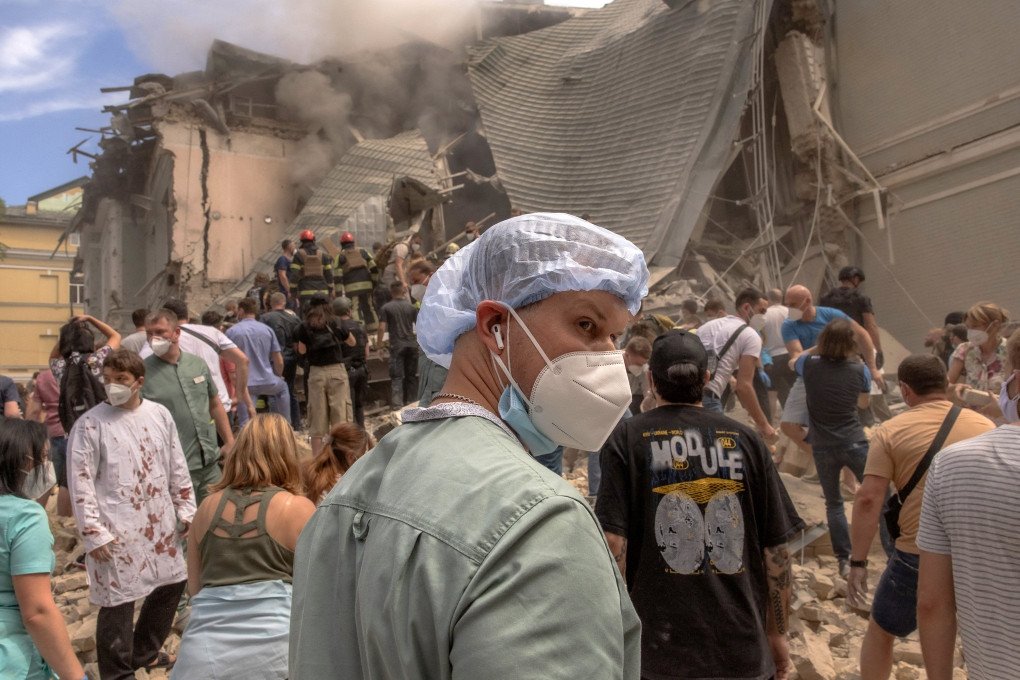
So, what’s the problem?
Instead of critiquing Russia’s elite, whose wealth was built on crime and exploitation in the 1990s, Anora turns their grotesque wealth into mere set dressing—an aesthetic playground where corruption, exploitation, and violence are stripped of consequence and reduced to spectacle.
But the issue isn’t just Anora’s hollow portrayal of Russia’s ultra-rich—it’s also about who gets to tell these stories. Yura Borisov, nominated for Best Supporting Actor, has a history of starring in Russian state-sponsored propaganda films, including Kalashnikov, a biopic about the inventor of the AK-47 that was filmed in Russian-occupied Crimea after its illegal annexation. He has never publicly condemned Russia’s war against Ukraine.
In fact, the actor is listed on Myrotvorets for deliberately violating Ukraine’s border to enter Russian-occupied Crimea, aiding attempts to legitimize the Russian occupation, and engaging in illegal business there.

Meanwhile, Mark Eidelstein, who plays Vanya, is a Russian-born actor who has lived in Moscow for most of his life. Like Borisov, he has made no public statement about Russia’s war. Many in the film community have urged actors and directors to speak out against the invasion. Ukrainian filmmaker Valentyn Vasyanovych, for instance, has called on the international community to “stop any cultural collaborations with representatives of a terrorist country.” While individual actors aren’t necessarily responsible for their country’s politics, they do have the ability to take a stand. Borisov and Eidelstein continue to work in Russia and participate in state-funded, patriotic film festivals.
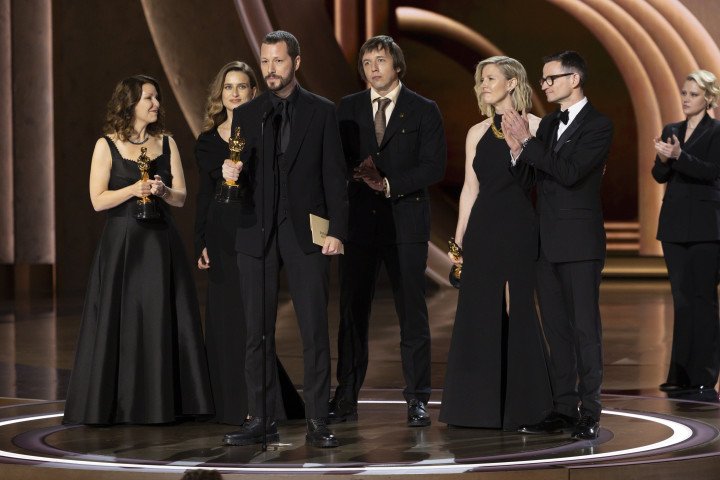
“The ongoing war is no longer a concern for the big film festivals, it’s like yesterday’s news,” says Olga Sydorushkina, program curator at the Ukraine Institute London. “Half of the cast is continuing to participate in pro-government film festivals in Russia, taking leading roles in patriotic films that are funded by the government. That is very questionable.”
The film isn’t a fairy tale—it’s a cautionary tale, warning against embracing Russian culture and the influence that comes with it. “Anora is a good film,” says Sydorushkina, “but for the Russian film community, it is more than just a good film – it is a sign that there is no cancellation of Russian culture. It is a victory for them.
-fca37bf6b0e73483220d55f0816978cf.jpeg)
-3db1bc74567c5c9e68bb9e41adba3ca6.png)



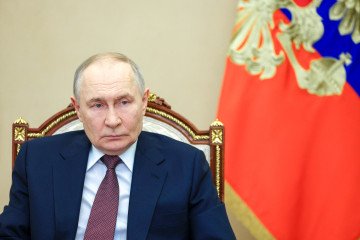
-f88628fa403b11af0b72ec7b062ce954.jpeg)